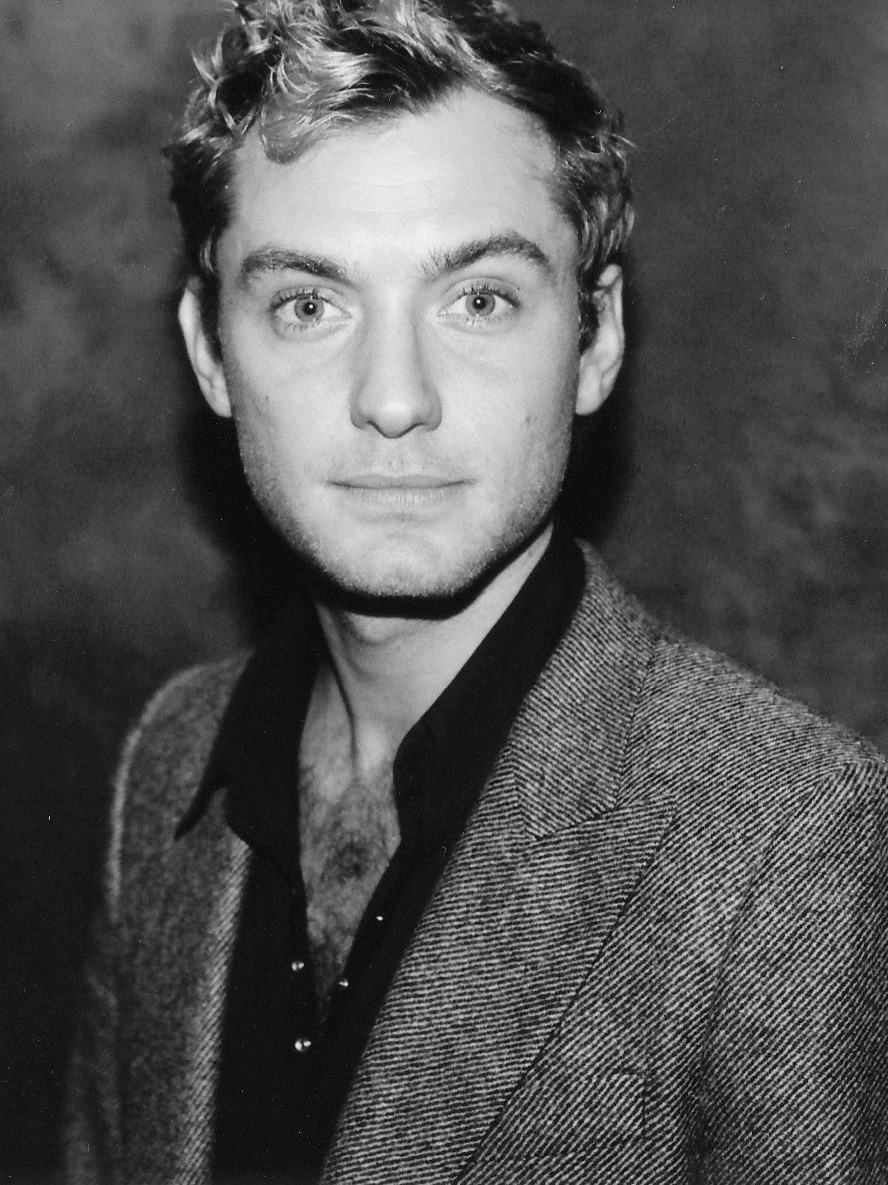
- Golden Globe Awards
Out of the Archives, 2001: Jude Law on Russians and War
Jude Law, four times Golden Globe nominee, spoke with the journalists of the Hollywood Foreign Press in 2001 about playing a Russian sniper at the Battle of Stalingrad during World War II in Enemy at the Gates, written and directed by Jean-Jacques Annaud. The British actor reprised his role as a young Aldus Dumbledore in Fantastic Beasts: The Crimes of Grindelwald (2018) and Fantastic Beasts: The Secrets of Dumbledore (2022), directed by David Yates.
Law said that he was already familiar with Russian literature and culture before playing a Russian sniper in Enemy at the Gates: “I’ve always had a fascination with Russia because of my love of Chekhov. I was one of those people who would always go and see a Chekhov play and find it terribly funny, while in England on the whole you’re encouraged to treat Chekhov as if it’s deadly serious and very morose, but I’ve always found it wonderfully ironic. I think the Russians have a very similar humor to the British, funnily enough, but a greater capacity for suffering. The Brits bitch and complain a little bit more to each other. The Russians have a slightly deeper, more rooted sense of suffering and of self-pain. So this was a great excuse for me to indulge in some of my favorite literature and to discover some new literature, like Vasily Grossman’s Life and Fate, which is one of the best books I’ve ever read.”
Law researched the life of the real-life sniper, Vasily Zeistev, who was awarded the title of Hero of the Soviet Union after killing 225 enemy soldiers at the Battle of Stalingrad: “I initially relied very heavily on Jean-Jacques’ knowledge of the subject, which was pretty extensive, and by the time I read the script, he had already managed to squeeze the essence of the guy into the written screenplay, which was a great read. The benefit of playing a real character is that you’ve got all this wonderful fodder and homework to color and detail your performance. I’m quite a restless actor, and I always like to be reading something relevant to the piece, so it was good that there were loads to read. The diaries that were written were colored with propaganda and there was a certain overblown quality, things that I didn’t quite believe. Jean-Jacques warned me of that, but what I did get was the sense that this guy was a reluctant hero. He was salt of the earth, a very unassuming and modest man with this extraordinary capacity to live with the psychological effects of having to kill people without really a choice. I mean, the choice was kill or be killed. He says in the film, ‘the faces of these men come back to me, and they’re replaced by more faces.’ That’s the hardest thing or the greatest achievement that he was able to live with himself through that and continue to do so day after day after day.”
Law recognized that Russia in 2001 was very different from Russia in 1943 when the Soviet Union defended the city of Stalingrad attacked by Nazi Germany: “The Russia that Vasily Zeistev was a part of was obviously not quite the same as the Russia that exists today, and his journey is symbolic of what Russia was going through at that time. It was suffering under great self-doubt, it was being squashed, the people were being told not to have a personality, but to be part of the greater good. I loved the fact that Vasily was an Everyman, he was very straightforward, not stupid but a very simple man who was able to survive and embrace the hardship of that environment. His journey to try and find the motivation to believe in himself was ultimately through the war and what happened with the victory of Stalingrad.”
The actor reflected on the horrors of war: “I’ve certainly learned more about war after this movie. I had shied away from studying war because it was something that scared me. I am not a great fan of warfare or fighting and combat. And even though I can’t presume to know what it must have been like to be in real conflict, to really kill people or be surrounded by carnage and death, what I did experience really harrowed me and upset me and reminded me that war such a terrible waste of time and waste of life, especially in this particular battle. It was basically a game of chess played by two crazy egotists (Hitler and Stalin), who were both extremists and narcissistic dictators, who were using real men and women as their pawns and the carnage was awful. What’s wonderful about Vasily is that he’s not only a symbol of Russia at that time but also a symbol of the Everyman in conflict around the world at any time. That’s why I think Enemy at the Gate is quite a special film, because this sniper is someone who is simply a pawn in someone else’s fat cat’s game, and yet out of conflict so often comes incredible human suffering, but also incredible human achievement and bravery.”